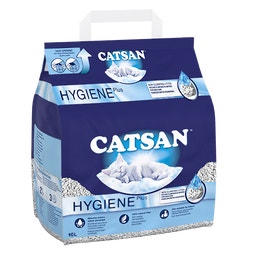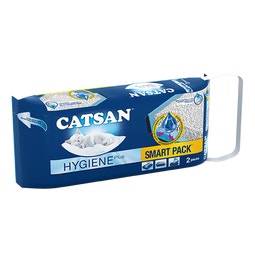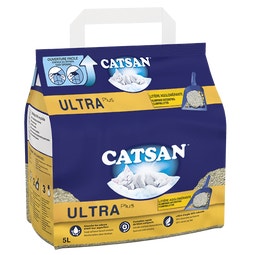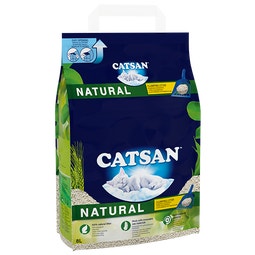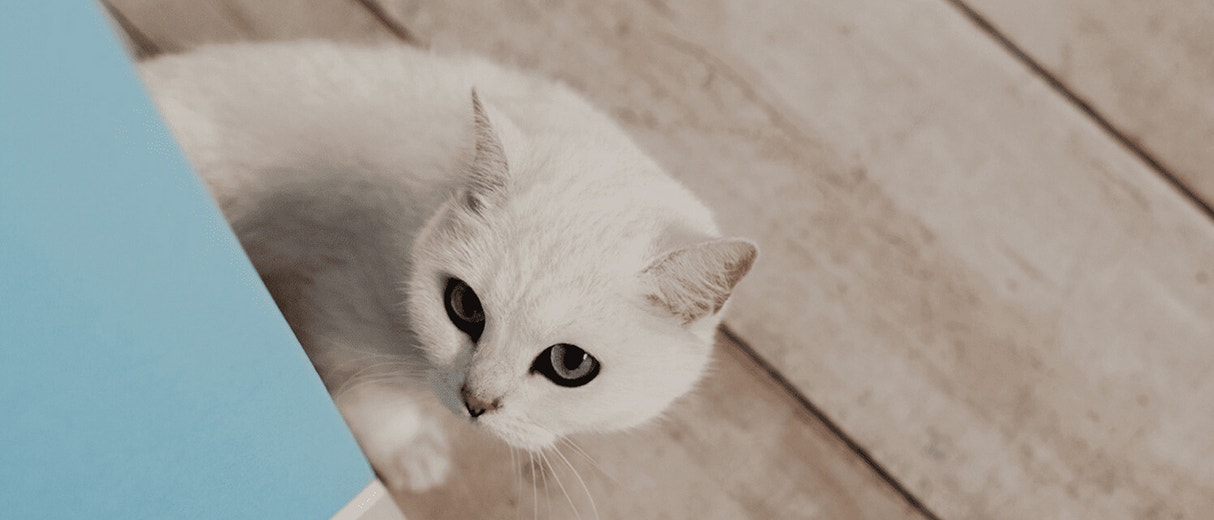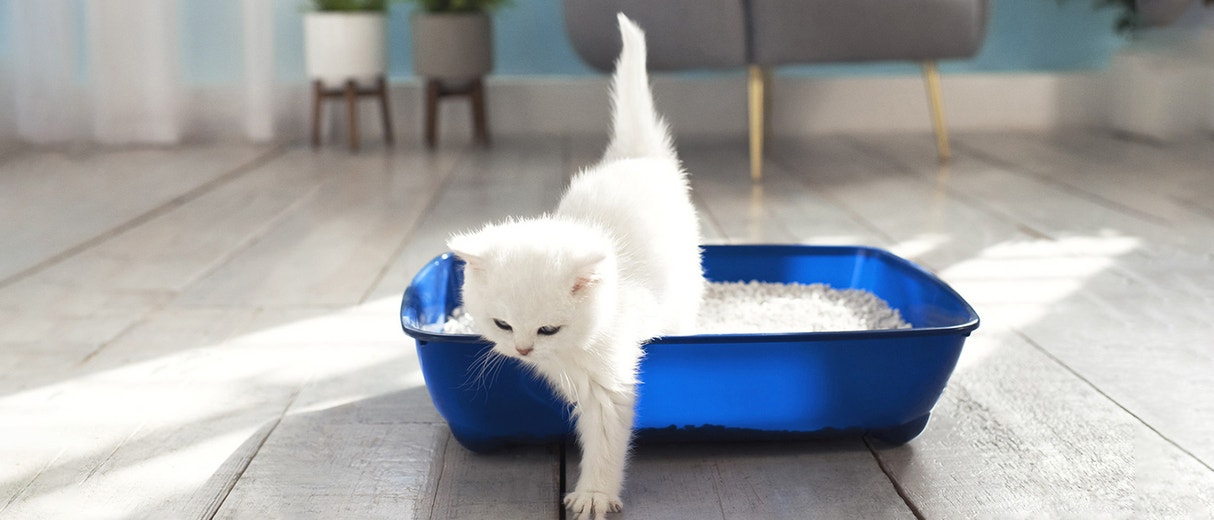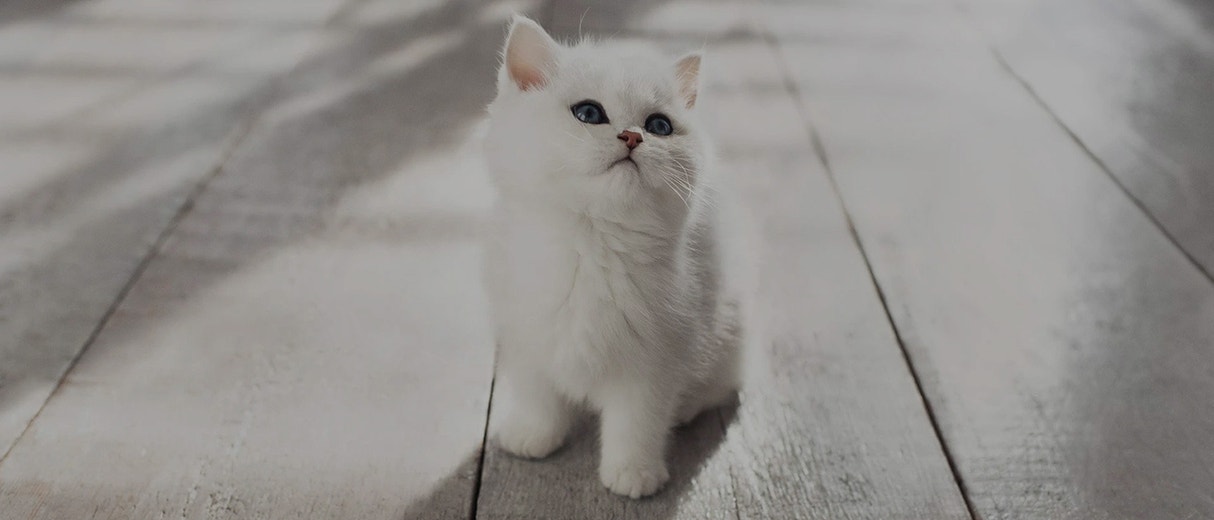
How to kitten proof your home – our top tips
Kittens are little balls of joy! That said, they’re also capable of getting into all kinds of mischief so, before bringing one into your home, it makes sense to kitten proof. That way you and your furry friend can get on with the all-important business of having fun together.
If you’ve ever baby proofed your home, you’ll have some idea of what’s involved in kitten proofing. Remember though, kittens are babies who can leap and climb! Not all of them will do all the things mentioned, of course, but it’s always better to err on the side of caution. Our handy guide will walk you through what to think about - and we’ve even got tips on how to kitten proof your garden.
Why kitten proof?
There are two main reasons for kitten proofing your home. The first, and most important, is keeping your adorable little ball of fluff out of harm’s way. The second is protecting your belongings from your kitten. Scratching is a completely natural feline behaviour, for example, but you would probably rather your cat didn’t choose to use your sofa or favourite jacket as their scratching post!
How to kitten proof your home so it’s safe for them
Cats can get into and onto just about anything and are able to leap, climb and crawl. This means, before you bring your kitten home, it’s important to go from room to room looking at everything from a kitten’s perspective. Here are some of the key hazards to be aware of:
1. Cables, wires and things that dangle
Much like human babies, kittens explore the world with their mouths as well as their paws (not that human babies have paws of course!). This means all cables and wires need to be taped down, tidied away or encased in protective plastic tubing. You also need to secure anything that dangles such as window blind cords and curtain tassels.
2. Close off potential escape routes
Kittens like to explore, so close and lock all windows and keep the doors to cupboards, balconies and garages shut at all times. It’s also important to block off any gaps in the floorboards or behind kitchen cupboards. The principle here is not to let your kitten outside until you decide they’re ready for that (if indeed you’re not planning on them being an indoor cat). Every day, millions of cats navigate the outside world with no problems whatsoever, but there are undeniably dangers from road traffic to foxes and other pets, so you want to make sure your cat is ready.
3. Lock away any small, harmful items
We mentioned that kittens like to explore the world with their paws and mouths. This doesn’t always stop at chewing. Stray rubber bands, string and ribbon are all something your little kitten might decide to eat. Some cats are more prone this behaviour than others so monitor yours around these type of items. Playing with them under supervision is fine, but when you’re not around, make sure you prevent access.
4. Lock away harmful substances
Cleaning products and medicines need to be firmly beyond paw’s reach. A closed cabinet you are sure your cat won’t be able to open is best.
5. Some human foods can be dangerous
Did you know that some common foods that we humans enjoy can be very dangerous to a cat? Chocolate, chewing gum and onions are a few examples.
6. Be careful about certain houseplants and flowers
Some houseplants and cut flowers can also be toxic if your kitten decides to nibble on them. These include amaryllis, azalea, lily and lily of the valley. The answer is either to choose more appropriate plants or to make sure any toxic plants are locked away in rooms your kitten can’t access.
7. Keep the toilet lid down
A kitten can easily fall into an open toilet and not be able to get out again and the consequences can be tragic. With this in mind, it’s important to teach all the humans in your household that they must keep the toilet lid down at all times.
8. Keep your washing machine and tumble drier doors closed
Kittens are fond of finding dark cosy places to sleep so it’s important to keep the door to your washing machine and tumble drier firmly shut. It also a good idea to get into the habit of checking the drum before switching the machines on.
9. Beware of fire
Kittens gravitate towards warm spots (who can blame them?) so, if you have any open fires, you’ll need to install a fireguard. It’s also important not to have any lit candles in a room with your furry friend.
10. Ditch the wastepaper bins
Covered bins are a must in a home with a kitten. Otherwise, they’ll be able to inspect - and eat - the contents of the bin. They can also fall into them or knock them over. Yes, uncovered bins and cats aren’t a good combination!
How to protect your home from your kitten
Once you’ve thought about potential hazards, you can turn your attentions to protecting your home from your kitten.
1. Save our sofas!
Scratching is natural feline behaviour so if you want to save your best furniture from being scratched to bits you can either keep your furry friend out of those rooms or offer an attractive alternative in the form of a scratching post.
2. Remember kittens will chew almost anything
Anything left lying around is fair game for a curious little kitten to sink their teeth into, from your new shoes to your child’s favourite teddy. Sounds like a brilliant way of encouraging your kids to tidy up their toys!
3. Remember your kitten can climb
If you’ve got precious and delicate knick-knacks, it’s best to keep them in closed cabinets or in rooms your cat can’t access. Putting them up high isn’t a guarantee they’ll be safe because inquisitive little kittens can climb.
Be prepared for the odd accident
Most kittens get the hang of litter training fairly quickly. That said, there may be the odd accident along the way. Use an enzymatic cleaner to eliminate the smell. If your kitten often toilets outside the litter box, do chat to your vet to make sure there’s not an underlying health issue.
Should you keep your kitten in one room?
It can be a good idea to restrict your kitten to one room when you first bring them home. Make sure your kitten has everything they need in there, from their bed, to their food and water to toys and a litter tray. It’s best not to restrict your kitten to one room after the first couple of weeks though - they’re social creatures who need interactions with other family members!
When can you let a kitten roam the house?
Cats are natural explorers so it’s important for their development that they can roam more freely as time goes on. Before you allow this, make sure you have thoroughly kitten proofed the whole house and that your kitten is settled and litter trained.
How to kitten proof your garden
Even if you intend to let you kitten go outside, you should keep them in the house until they have been vaccinated and dewormed. This is because elimination is part of marking territory which means your kitten could be in contact with other cats’ waste. You need to ensure your kitten’s immune system is ready to cope with that.
Once your kitten is ready to take on the outside world, you’ll need to kitten proof your garden with the same sharp eye you used to make your home safe. Here are a few things to think about.
1. Make sure any toxic substances are locked away
Things such as antifreeze, rat/mice pellets, weed killer and slug pellets need to be safely locked out of the way.
2. Think about tools that could hurt your kitten
While you’re in the business of putting harmful substances out of paw’s reach, it’s also important to make sure your kitten can’t get hold of any tools they could hurt themselves with.
3. Be aware some plants are toxic if eaten
Many popular plants are harmful to your kitten if eaten, including Cyclamen, Tulips and Hyacinth. Don’t worry though, there are still plenty of gorgeous plants we cat lovers can choose from.
4. Think about open water
If you have a swimming pool or a pond in your garden, your kitten could fall into this. This means if they are going to be allowed out unsupervised, you might want to invest in a pool alarm or pond cover.
5. Remember to keep shed and garage doors shut
An inquisitive kitten could get trapped in a shed or garage. The solution is simple though - just make sure doors are always kept shut.



